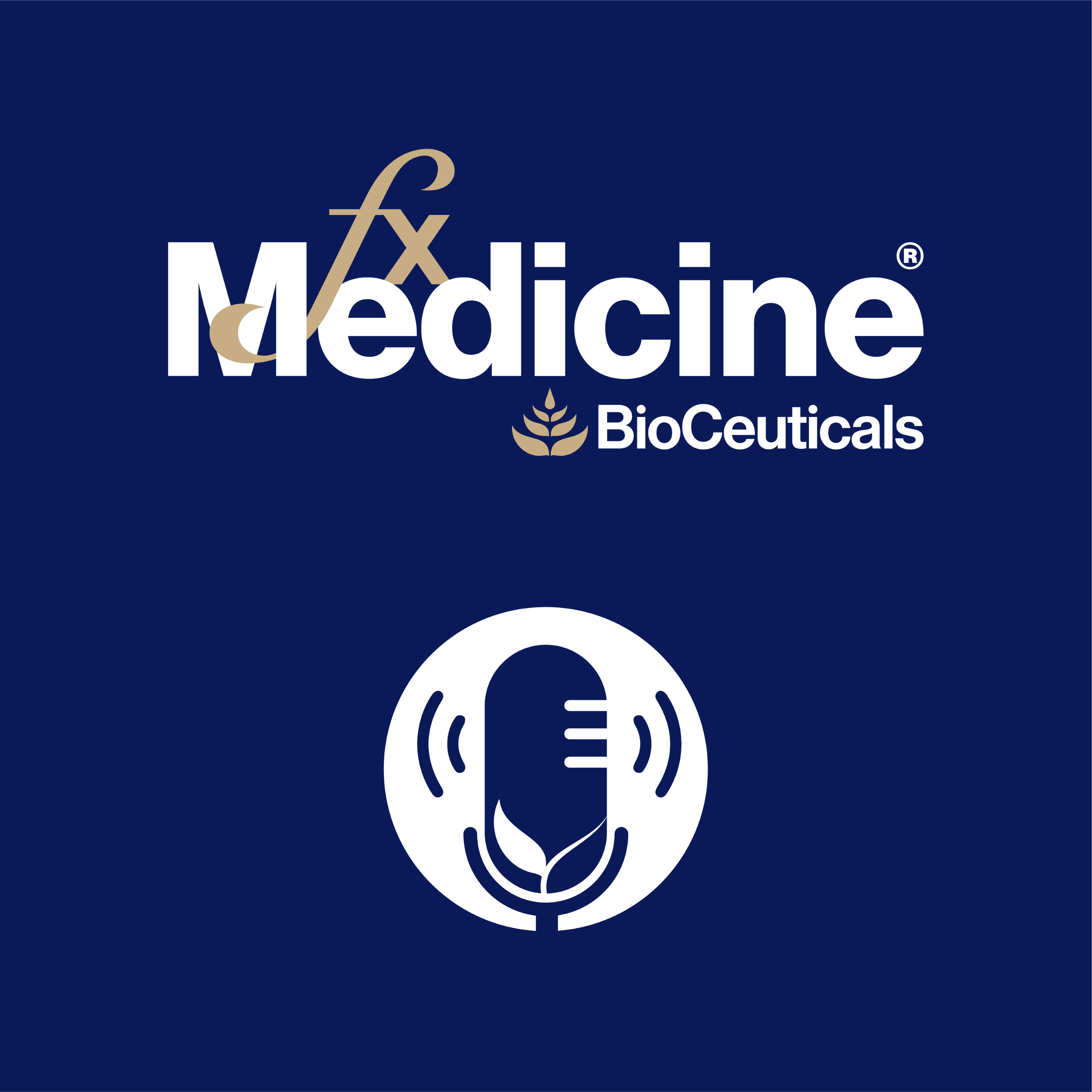

FX Medicine Podcast Central
FX Medicine
FX Medicine is at the forefront of ensuring functional and integrative medicine gains the recognition it deserves and ultimately establishes itself as an integral part of standard medical practice. Our podcasts are designed to promote research and evidence based therapeutic practises, acting as a progressive force for change and improvement in patient health and wellbeing.
Episodes
Mentioned books

Mar 2, 2015 • 0sec
Adrenal fatigue with Dr Bob Buist
In today's fast-paced and high-demand world adrenal exhaustion is one of the most common clinical presentations. in this podcast, Andrew Whitfield-Cook interviews Dr Bob Buist on the impact of chronic stress on adrenal function and how this may affect normal thyroid and immune function.

Feb 12, 2015 • 0sec
Gut-Immune Axis with Mike Ash
The relationship between the gut and the immune system is one of the most exciting and clinically relevant areas of research in molecular medicine. We have learnt that disturbances in gut homeostasis and microbial balance can activate the innate immune system in several ways causing wide and systemic dysfunction. In this interview Mike Ash, an immunologist and naturopath, discusses the latest research in this field. He explains how you can use gastrointestinal immunology to enhance mitochondria and consequently reduce activation of the innate immune system, reduce oxidative stress and reduce inflammation. Mike Ash presents a compelling view of how gut can be a point of intervention for the safe treatment of chronic disease while providing an opportunity for multiple organ system resolution.

Feb 3, 2015 • 0sec
Migraines, genes and nutrition with Professor Lyn Griffiths
Migraine is a severe neurological disorder that affects a significant proportion of the population. Prevalence estimates vary between 12 and 25% depending on the population studied. The disorder has a significant genetic component. In this interview, Andrew Whitfield-Cook interviews Professor Lyn Griffiths on her very promising research which looks at genetic profiling in conjunction with nutriceutical therapies. These clinical trial highlight the potential importance of nutritional interventions in this disorder.

Jan 28, 2015 • 0sec
Migraine: what is effective? with Dr Mark Donohoe
Migraine is ranked as the third most prevalant health disorder worldwide and is considered among the top ten most disabling medical conditions. In this podcast episode Dr Mark Donohoe and Andrew Whitfield-Cook discuss some of the important research and clinical insights in support of functional and nutritional medicine for the safe treatment and prevention of this painful neurological disorder.

Jan 23, 2015 • 0sec
BioCeuticals Research Symposium 2015 - What can you expect?
On April 17 - 19, BioCeuticals will be holding it's 3rd Annual Research Symposium. By extending the Symposium, from a 2 day event to a 3 day experience, we will be offering the opportunity to hear our expert guest speakers deliver a deeper and more comprehensive exploration of their topics. Together, Dr Mark Houston, Dr Catherine Willner, Dr Joseph Pizzorno and Mike Ash will deliver a masterclass in Functional Medicine. In a systematic series of didactic, workshop and group presentations they will explain how you can integrate this knowledge to create a cohesive, wholistic system of medicine.
In this podcast Andrew Whitfield-Cook joins the BioCeuticals Education Manager, Danny Urbinder, and Dr Mark Donohoe, to discuss what attendees can expect from this exciting and important event.

Jan 13, 2015 • 0sec
Methylation: What is it and who is affected
Methylation is now a major focus for many health care practitioners. In each of us, this process occurs trillions of times every second and is involved in countless biochemical pathways. Efficient methylation is therefore essential to quality of life. But, is our approach to methylation disorders appropriate? According to Dr Mark Donohoe there is a tendency for practitioners to treat methylation issues with a sledge hammer and to approach this as if everybody needs treatment. In this interview, Dr Mark Donohoe explains his understanding of methylation, patient presentations and treatment considerations. This is essential listening for anyone who wants to better understand this vital process.

Dec 5, 2014 • 0sec
Vitamin D: pregnancy and preconception with Professor Michael Holick
Recent studies have shown that women who supplement with vitamin D during pregnancy have a greatly reduced risk of complications, including gestational diabetes, preterm birth, and infection. In this interview, Professor Michael Holick reviews this research and provides invaluable recommendations for those considering vitamin D supplementation.

Nov 27, 2014 • 0sec
Fibromyalgia: Dr Paul Bird
Dr Bird is a clinical rheumatologist who specialises in the treatment of Fibromyalgia. In this interview he discusses the broad lifestyle, nutritional and pharmacological approaches he adopts in managing this complex condition. Nutritional therapies features significantly in Dr Bird's approach, particularly when addressing those areas that have limited response to medication.

Nov 26, 2014 • 0sec
Toxicity and Detoxification with Dr Joseph Pizzorno
In this interview Dr Joseph Pizzorno discusses the exciting advances in our understanding and treatment of toxicity and detoxification. After reviewing over 10,000 research papers and trialling his protocols on thousands of patients, Dr Pizzorno is a leading authority on this critical area of health management.
Dr Pizzorno will be speaking at the next BioCeuticals Research Symposium on April 17 - 19, 2015. He, along with 3 other world leading integrative health experts, will be delivering a 3 day masterclass program on the interrelated drivers of health and disease. For more information, visit the BioCeuticals website and click on the Education tab.

Nov 11, 2014 • 0sec
Functional Pain Management
Chronic pain is typically a difficult condition to address, because it is perceived by the sufferer, often without any corresponding objective measure. In this latest FX Medicine podcast we interview Dr Mark Donohoe, an integrative GP with extensive experience in chronic pain management. By differentiating between the different types of pain and their underlying causes, Dr Donohoe offers numerous treatment options that he has found to be of genuine benefit to his patients.


